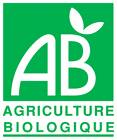The number of French organic wine producers is increasing each year, at a rate of 20-25% in terms of organic vine surface area, according to the Fédération Nationale Interprofessionnelle des Vins de l'Agriculture Biologique.
But what does it mean exactly when we talk about "French organic wine"?

To put it simply, organic wine is a wine that is made from organically grown grapes, and that has had no chemical additives or other unnatural substances mixed in during the fermentation and maturing stages.
In France, consumers look for the "Agriculture Biologique" label to know whether a wine is organic or not, but beware ; presently, this label only certifies the manner in which the grapes are cultivated, and not the way in which the wine is actually made once the grapes have been harvested. The European Commision is currently formalising the rules to resolve this issue in its Orwine project. More to come soon hopefully on this. UPDATE - SEE ARTICLE NO TO EUROPEAN ORGANIC WINE ?
Cultivating Organic Vines
Let's start in the vineyard. To cultivate organic vines, the use of all chemical fertilizers, herbicides and pesticides is banned. The systematic and repetitive use of these products can do much direct and indirect harm; on the insects, which has repercussions on the food chain and fertilisation of plants; on the natural plants which are important to sustain the balance of nutrients in the soil and to limit the effects of soil erosion; and on the wine makers who have to handle the chemical products, without even talking about the effects on the consumers themselves.
Prevention. That is the key to organic cultivation. Instead of using chemical products to treat diseases, organic winemakers use natural preventative measures. For example, to reduce the risk of disease and rot linked to wet weather, the vineyard manager removes excess leaves and shoots to help the air circulate better between the bunches of grapes, thus helping them to dry quicker. Copper and sulfur are the only products that are allowed to be added to the soil, to prevent mildew and oidium.
The soil is worked manually or by machine in place of weed killers, which help the microbes in the soil to prosper, and thus to be better aerated and its quality enriched.
Natural nutrients are returned to the soil as much as possible. For example, the pruned vine shoots are crushed in between the rows of vines, and the marc (skin, seeds and stalks that remain after the grapes are crushed) is spread in the vineyards.
Organic Wine Making
At the time of writing, the French organic wine specifications do not apply any obligation in terms of the wine making, but in reality, the majority of wine makers that have taken the time and effort to cultivate organic vines, strive to express the taste of the grapes, the terroir and their work as naturally as possible.
In general, organic wine contains levels of sulfites much lower than normal wine (at least -50%), and the wine makers don't add sugar, other additives or genetically modified organisms that can change the aroma, colour, or taste artificially.
The Philosophy Behind Organic Wine
Often the journey to becoming organically certified prompts the wine maker to ask him/herself other questions. What other actions can they take to better respect the environment and the wine? For example, reorganising the reception hall in the winery to use gravity as much as possible in carrying the grapes into the vats instead of pumps. Or using old vats to collect rainwater that is then used to clean the tractors and machinery.
How to choose an Organic Wine?
As with all wines, we believe that they are best appreciated when we know the story behind where the wine comes from; the wine estate, the terroir, and the people involved. It is therefore recommended to:
- Read articles and reviews on organic wines and organic wineries in the wine press and guides
- Ask your local wine merchant what organic processes have been used in making the organic wines from each winery
- Or best of all, get out, discover and meet the organic winemakers at their estate.
Two recent guides that we appreciate on French organic wine are Le Guide des meilleurs Vins Bio de France (Gault Millau) and Carnet de Vigne Omnivore (Hachette Pratique), both of which are unfortunately only available in French. If you have a French organic wine guide in English that you have found useful, please share!
We will be taking a look at
biodynamic wine in a future article, and explaining what
makes it different to organic wine.
Comments
No comments.




